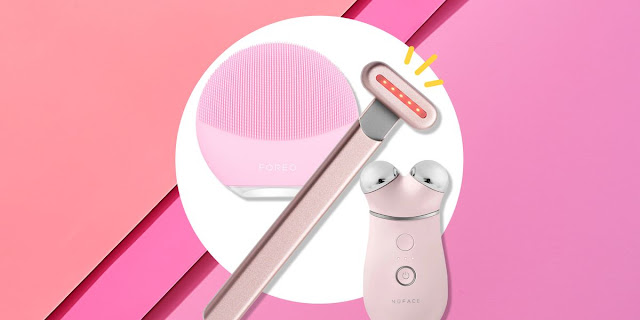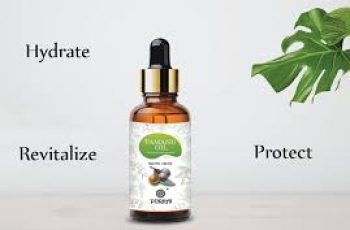
Does your morning skincare routine have to be the same as your evening skincare routine?
If you have a well-established skincare routine, you know the benefits it can have on your complexion. However, many of you want more from your routine. I mean, even the slightest difference between your daytime and nighttime routines can have a huge impact on your skin.
With that in mind, we’re going to jump right into some of the most common questions about whether your morning skincare routine needs to be the same as your evening skincare routine.
Should I use a different cleanser in the morning and at night?
Not necessarily, there are different opinions on washing your face twice a day. Some believe that cleansing at night is the most important because during the day the skin is exposed to many aggressors, makeup, UV radiation, pollution, and other free radical damage. Another view is that people should cleanse their skin twice a day to avoid the buildup of bacteria, dirt, and dead skin cells that form throughout the day. There’s nothing wrong with either, but you need to find the method that works best for you. Listed below is a list of benefits to help you decide which formula and method is best for you and your skin.
Benefits of cleansing in the morning
Great for those with oily skin that often break out, as the cleanser removes the remaining product and excess sebum from the night before
Use a formula rich in glycolic acid or vitamin C for glowing skin
Use a cleanser with AHA or BHA to allow the skin to absorb all subsequent products quickly and effectively
You’ll find that your makeup is smoother and lasts longer
Cleansing your skin in the morning is considered a great way to mentally prepare for the day ahead
Benefits of cleansing at night
You can double cleanse, first using a micellar water formula to remove all traces of makeup, then using a richer cleanser to remove any remaining product, bacteria, and accumulated impurities
Cleansing at night prepares your skin to nourish and regenerate, especially when you use active ingredients to care for it and remove traces of the day’s stress
Cleansing your skin at night is much more important than in the morning, because at the end of the day, your skin is exposed to all the stress from free radicals, makeup, and other aggressors
Perhaps a different choice of ingredients in your nighttime skincare formula will also cleanse the skin deeply, reaching the underlying layers of the skin and clearing impurities from the pores, while knowing that the skin will not be too sensitive to UV radiation reactions after use.
By now, you should have determined which cleanser is best for you and your skin type. Of course, you can also cleanse twice a day. As mentioned earlier, this is especially helpful for people with oily skin. However, people with dry or sensitive skin should limit the frequency of cleansing and pay close attention to the ingredients in the formula to prevent irritation or skin reactions.
What should your nighttime skincare routine look like?
Here is a simple list of daily nighttime products that will provide the best results and significantly improve your skin.
Use a micellar cleanser or other liquid cleanser to remove makeup.
Cleanse your skin again with a more luxurious formula to remove any remaining traces and debris, leaving your skin thoroughly clean.
Wipe your face with a soaked cotton pad and apply an acid tonic containing AHA or BHA, such as glycolic acid or salicylic acid, to your skin. If you have sensitive skin, it is best to skip this step.
Apply serum all over your face. Choose a product rich in hyaluronic acid or niacinamide to moisturize your skin and lock in moisture after cleansing and chemical peels.
Apply eye cream to the eye area with your ring finger as this applies the least pressure.
Apply a nighttime moisturizer to your face, neck, and chest. Choose a cream that is rich in antioxidants and regenerating ingredients to rejuvenate your skin while you sleep.
You can also use a nighttime mask to treat your skin. For more information on how to use a nighttime mask, see our post.
The nighttime skincare routine is considered the best time to use retinol products because it does not expose you to UV radiation, which can render the retinol useless. Be sure to research the best ways to incorporate retinol into your skincare routine, as it can cause severe irritation if used incorrectly.
What should you put on your face in the morning?
There are many options for your morning routine when it comes to choosing the products that work best for you and your lifestyle. There are a few set steps in your daily routine that may vary from person to person, depending on their skin type. However, there are a few that are considered extremely beneficial for all skin types:
Hyaluronic acid – Since this acid occurs naturally in the body, it rarely causes skin irritation and can help keep your skin hydrated and its natural protective barrier fully functional against free radicals and other impurities.
SPF – Applying SPF 30 and above daily can help protect your skin from all kinds of UV damage.
Should I tone my face morning and night?
Yes, again this depends on your skin type as dry and sensitive skin can start to feel tight and uncomfortable, especially if the formula contains high levels of facial acids and chemical peels. Oily skin may also experience some degree of dryness if the ingredients are too strong or if the product is overused. It is best to deprive the skin of non-essential oils and moisture as this can cause the skin to produce too much sebum, leading to acne and other breakouts.
Should I use a different moisturizer at night?
There is no right or wrong way to do this, but you will find that moisturizers used at night are usually thicker in texture and contain more antioxidants.
When we sleep, our skin naturally regenerates and removes any damage done throughout the day. Making sure you get enough sleep (ideally 8 hours) will keep your skin in tip-top shape; it is not for nothing that this sleep is called beauty sleep.However, with our busy lifestyles, few of us can sleep for 8 hours at a time, which is when a nighttime moisturizer can come into play.
These are some of the most commonly asked questions about morning and nighttime skincare routines and how they complement each other to achieve an impressive complexion. If you want to learn more about your skin type and get a better idea of how to create a successful skincare routine, check out our blog on the four most common skin types.


